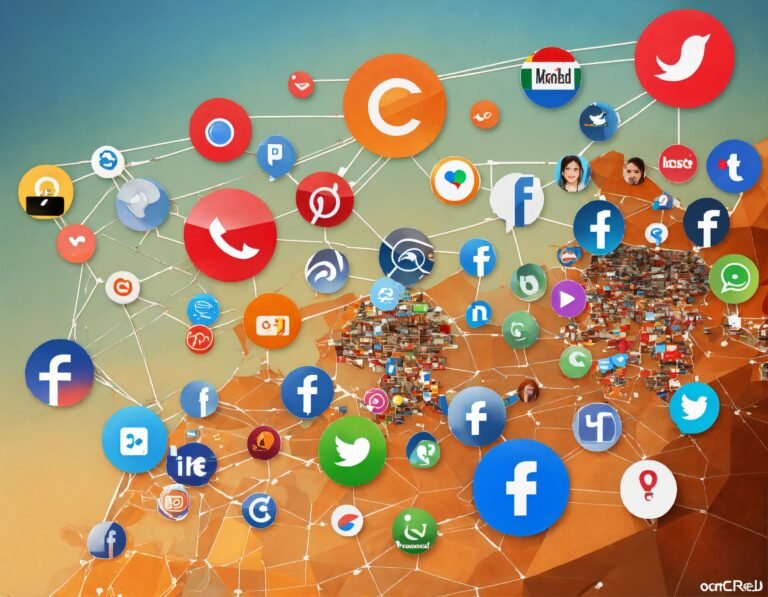Introduction
In the modern digital era, social media apps have revolutionized the way we communicate, connect, and consume content. However, amidst the allure of constant connectivity lies a phenomenon known as the banality of life. This term refers to the mundane and routine aspects of existence that are amplified and perpetuated by the use of social media platforms. While these apps promise to enhance our lives, they often contribute to a sense of monotony and superficiality in our daily experiences.
The Impact of Social Media Apps on Daily Life
Increased Screen Time
Social media apps have drastically increased the amount of time we spend glued to our screens. Whether it’s scrolling through endless feeds, watching stories, or engaging in virtual conversations, these platforms have a way of consuming hours of our day without much tangible benefit. The constant stimulus from notifications and updates can lead to a sense of dependency and distraction, pulling us away from more meaningful activities and interactions.
Loss of Authentic Connection
Despite their promise of connection, social media apps often lead to a loss of authentic human connection. Meaningful conversations and face-to-face interactions are replaced by likes, comments, and emojis, leaving us craving genuine intimacy and rapport. The convenience of digital communication can sometimes feel impersonal and shallow, lacking the depth and nuance of real-life interactions.
Comparison Culture
Social media fuels a culture of comparison, where we measure our worth and success based on likes, followers, and curated images of perfection. The constant exposure to highlight reels and carefully crafted personas can lead to feelings of inadequacy and self-doubt. We find ourselves constantly comparing our lives to those of others, striving to meet unrealistic standards and expectations set by the digital world.
Psychological Effects of Social Media App Usage
FOMO (Fear of Missing Out)
One of the most prevalent psychological effects of social media app usage is FOMO, or the fear of missing out. The constant stream of updates and highlights from others’ lives can leave us feeling like we’re not living up to the same standards of excitement and success. We fear that we’re missing out on important events, experiences, and opportunities, leading to anxiety and discontent.
Anxiety and Depression
Studies have shown a correlation between excessive social media use and increased levels of anxiety and depression. The pressure to maintain an online persona, coupled with the fear of judgment and rejection, can take a toll on our mental health. The constant comparison to others and the pressure to project a perfect image can lead to feelings of inadequacy, loneliness, and despair.
Self-Esteem Issues
Social media apps often exacerbate self-esteem issues, as we compare our behind-the-scenes to others’ highlight reels. The quest for likes, validation, and social approval can lead to a distorted sense of self-worth and identity. We become overly concerned with how we are perceived by others, seeking validation and affirmation through online metrics rather than valuing our own inherent worth and uniqueness.
Addressing the Banality: Strategies for a Balanced Approach
Setting Boundaries and Time Limits
To combat the banality of social media, it’s essential to set boundaries and time limits on app usage. Designate specific times of the day for scrolling and interacting on social media, and resist the urge to constantly check for updates and notifications. By establishing clear boundaries, we can reclaim control over our digital habits and prioritize more meaningful activities and experiences.
Cultivating Offline Activities
Investing time in offline activities and hobbies can provide a much-needed break from the monotony of social media. Whether it’s spending time in nature, pursuing creative endeavors, or engaging in physical exercise, offline experiences offer a sense of fulfillment and authenticity that is often lacking in the digital realm. By cultivating offline interests and connections, we can rediscover joy and meaning in the real world.
Curating a Positive Social Media Feed
Finally, curating a positive social media feed can help mitigate the negative effects of app usage. Unfollow accounts that promote unrealistic standards or trigger feelings of inadequacy, and instead, follow accounts that inspire and uplift. By surrounding ourselves with positive and uplifting content, we can create a more nourishing and empowering online environment that supports our mental and emotional well-being.
Conclusion
In conclusion, while social media apps offer connectivity and entertainment, they also contribute to the banality of life. From increased screen time to comparison culture, the impacts of social media on daily existence are profound. However, by addressing the psychological effects and implementing strategies for a balanced approach, we can reclaim authenticity and fulfillment in our lives.
Unique FAQs
How can I reduce my screen time on social media apps?
Setting screen time limits on your device and scheduling regular digital detoxes can help reduce excessive app usage. Additionally, prioritizing offline activities and hobbies can provide a refreshing break from the digital world.
What are some offline activities I can pursue to break away from social media?
Engaging in activities such as hiking, painting, cooking, or volunteering can provide a refreshing break from the digital world. Spending time in nature and connecting with loved ones in person can also help recenter and recharge.
Is it possible to use social media apps without experiencing negative effects?
Yes, by cultivating a positive online environment, setting boundaries, and prioritizing real-life connections, it’s possible to use social media in a healthy and fulfilling way. The key is to be mindful of our digital habits and to prioritize our mental and emotional well-being.
How can I overcome feelings of inadequacy triggered by social media?
Practice self-compassion, remind yourself of the curated nature of social media, and focus on your own unique journey and accomplishments. Surround yourself with supportive and uplifting content, and remember that social media is just one aspect of your life, not a measure of your worth.
Are there any social media platforms that promote mental well-being?
While all social media platforms have the potential for both positive and negative effects, platforms like Instagram’s “well-being guide” and Pinterest’s mental health resources offer tools and support for users. By seeking out positive and uplifting content, we can create a more nourishing and empowering online experience.


